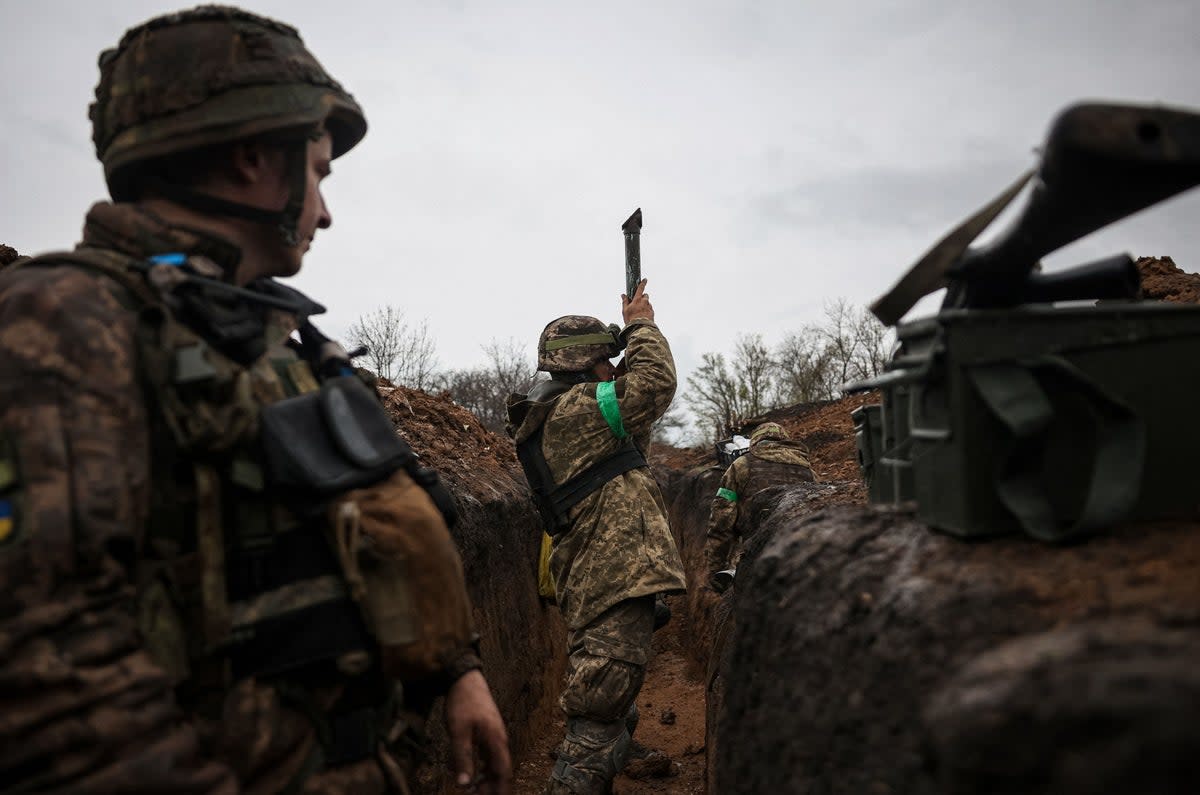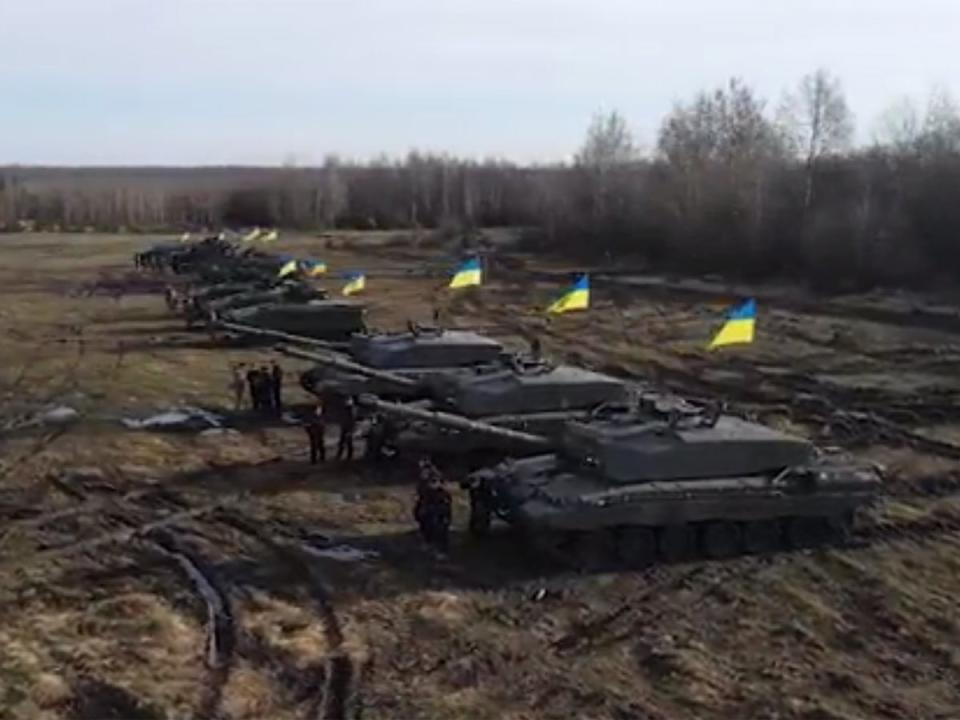Ukraine says whole of Russia will ‘panic’ when counteroffensive begins: ‘They will suffer the consequences’

Success for Ukraine in its long-awaited counteroffensive against Russia could spell the complete “collapse” of Vladimir Putin’s military or even the Russian economy, a senior minister in Volodymyr Zelensky’s government has said.
In an interview with The Independent, deputy defence minister Volodymyr Havrylov was deliberately vague about the timing of the counteroffensive, which is expected imminently as the mud and rains of spring give way to more favourable fighting conditions.
But when it does come – “very soon”, according to comments made by President Zelensky at a press conference last week – the offensive will expose the truth behind Russia’s tightly controlled propaganda regarding the war effort, and lead to a reckoning among ordinary Russians, said Mr Havrylov.
“We will launch our counteroffensive – when and where it doesn’t matter now,” he said. “[And when that happens] Russia will be in panic; you will see a lot of panic. They still don’t understand that [their] propaganda is demonstrating a false picture of what is actually happening on the ground. This war will be won on the ground, not on the TV screens, not on the internet.”
Mr Havrylov claims that Russia has suffered 200,000 casualties since Mr Putin invaded Ukraine on 24 February last year, though this number could not be immediately verified. Last week, Moscow rejected a US assessment that 20,000 of its troops had been killed and 80,000 injured in just the last five months, though the Russian government declined to provide its own figures.
The Kremlin has hidden the true scale of Russian losses from its own people, Mr Havrylov said, but will no longer be able to do so when Ukraine starts retaking territory and those casualties rise further still.
“You can’t fool your people for many years... especially if they are starting to see a difference on the ground, they are starting to see the killed and wounded, they see families who lost the men of their houses. You can’t hide the death of your son, or your husband, or your brother. They [Moscow] will suffer the consequences from this.
“... I would not be surprised if on some day, maybe this month or next month, we will see something which contributes to the immediate collapse of Russian strategy or its military, [its] economy,” the deputy defence minister continued.
Holding the salt-mining city of Bakhmut in Donetsk has been key to Ukraine’s preparations for the counteroffensive, allowing the defending forces to dictate the terms of the frontline and grind down Russia’s core military resources. The situation there has left the mood among Russian officers at a “very low level”, the deputy minister said.
By maintaining a foothold in the “fortress” of Bakhmut, Ukraine has exposed the fact that the Russian war machine is “not [of] the quality we saw a year ago when Russia launched the full-scale invasion in Ukraine and rolled in tanks in the first wave”.
“It means they are inevitably coming to the end in a disaster – sooner or later,” Mr Havrylov said. “Bakhmut demonstrated that, not only to us in Ukraine but also to the enemy, that there is no military solution for Russia in this war; even worse, there is a military disaster awaiting Russia at the end of this war, and we will see it soon.”
The deputy minister said Ukraine’s Western allies and commercial arms companies were reluctant to supply the country in the early stages of the war without full payment up front, assuming that Ukraine wouldn’t be around for long enough to complete payment by instalments. “Not many countries in the world believed that Ukraine could sustain this war,” he said.

Now, though, the country’s forces are trained up on Challenger tanks sent in by the UK, M1A2 Abrams and Bradleys from Washington, and a collection of new and refurbished Leopard tanks from European allies. They are also equipped with rising numbers of shells and drones.
“We demonstrated our courage to others, that we are reliable, serious and ready to defend our country with all means,” he says. And he reiterated Ukraine’s call for its allies to take the next step and supply advanced fighter jets, saying there is no other way to stop Russia’s own modern aircraft launching strikes from deep within Russian territory.
“We need something more sophisticated [than ground-based air defences], with a long-range strike capability to shoot down Russian airplanes at a distance of more than 100km (62 miles) – just to secure our people. That’s why we are asking our partners to provide modern fighter jets like F16s or similar... and we insist it be sent to us as soon as possible, because it [is] about [saving] the lives of civilians.
“This war will be won by Ukraine for technological advantage and superiority,” added Mr Havrylov. “Trust us. Turn more positively towards Ukraine and help us achieve a result.”
What that result might look like remains unclear, with Ukraine still refusing to entertain the idea of any peace settlement that involves its territory remaining in Russian hands – including the Crimean peninsula, which Moscow illegally annexed back in 2014.
“Nothing will stop us from retaking this part [Crimea] of our territory, and we are very open about that,” Mr Havrylov said, without detailing the military course of action that could make this a reality. “We are ready to do that. Russia has to accept it as an inevitable part of this war.”
With the stage set for Ukraine’s counteroffensive, Mr Havrylov said the situation could start to move very rapidly on the ground after many months of attritional conflict. “I can only say that we are doing everything possible to end the war as quickly as possible,” he said. “I would really like 2023 to be a year of victory.”


